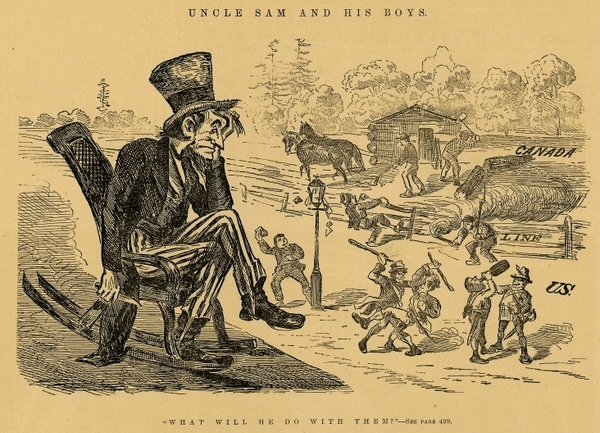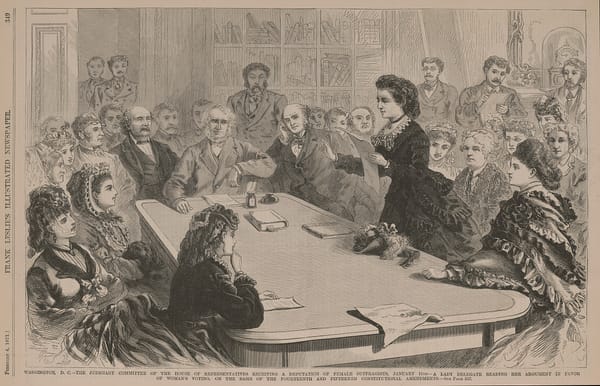The New York Times Launders Another Fascist
Misogyny, racism, and antisemitism all were glossed over in Ross Douthat's softball interview of Jonathan Keeperman.

The New York Times apparently has an addiction to profiling fascists whose beliefs will shock its liberal, upper-income audience. This time round, conservative columnist Ross Douthat interviewed Jonathan “L0m3z” Keeperman, the proprietor of far-right publisher Passage Press. I won’t waste my time or yours claiming Keeperman shouldn’t have been interviewed in the Times. I mean I’d wager some good money many folks in the Trump admin already subscribe to his Substack. Unfortunately for the rest of us, what fascists are thinking is newsworthy again.
I will gladly posit though that Keeperman shouldn’t have been interviewed by “a man too broadminded to take his own side in a quarrel,” a would-be William F. Buckley Jr. evidently incapable or unwilling to meaningfully engage with the fact that the man on the other side of his computer screen is a bigot best known for writing intellectual think pieces about how women ought to be back in the kitchen.
For those left blissfully unfamiliar, Keeperman is best known for his continual championing of “The Longhouse,” a theory that everything wrong with modern society can be traced back to the pernicious influence of women in power. Or, as he put it in his interview with Douthat:
My argument would be that, very self-evidently, the institutions in which all of these changes have occurred are now performing worse than they used to. And that is, at least in part, attributable to this change in norms. And this change in norms in turn is attributable to this change in personnel.
In Keeperman’s verbiage, that rather sterile term “change in personnel” means “women, very talented women, taking on leadership roles and succeeding in those roles, therefore introducing more women into the workplace based on that success.” After this open argument that a feminine touch is the rot at the heart of American society, Ross, ever the skilled interviewer, handily pivots to a discussion of myth and Christianity, dropping that particular thread for the rest of the interview.
Now, I will praise Douthat when warranted. Fairly early in the interview, he helpfully lists the groups and people associated with Keeperman and the man’s publishing venture: “the Silicon Valley right of someone like Yarvin,” “Peter Thiel,” “the Red Scare podcast,” and “the Nietzschean former graduate student–turned–online essayist and influencer Bronze Age Pervert.”
And, if you borrow the finely tuned ears of your local friendly Straussian, what’s being implicitly acknowledged by Douthat there is that the company Keeperman runs is an intellectual venue for the modern fascist movement.
The year Obama began his first term, Thiel infamously wrote that he could “no longer believe that freedom and democracy are compatible,” an irreconcilable conflict he largely attributed to women’s suffrage. Yarvin, the subject of the NYT’s first glossy “listen to a fascist” profile this year, still refuses to renounce his claim that it was really only wrong for Anders Breivik to slaughter children because mass murder couldn’t actually wipe out communism in Norway.
And Bronze Age Pervert, who has openly professed he believes “in Fascism or ‘something worse’” and whose Nietzschean screed Bronze Age Mindset Keeperman called “one of the great texts of the 21st century,” fits right in with the rest of Passage Press’ stable of authors, including other mostly pseudonymous figures like Raw Egg Nationalist. (If you’re curious, Douthat’s response to Keeperman’s vociferous recommendation of Bronze Age Mindset was simply, “I agree.”)
This throughline of far right authoritarianism shared by all Keeperman’s compatriots is quite clear. But outside of a strawman Ross leans on about how “allow[ing] certain debates” won’t turn the United States into Nazi Germany, and a trite acknowledgment that the Nazis, like Keeperman and his crowd, were “vitalists,” Douthat rather adeptly elides this topic as well.
As an interviewer, Douthat is equally non confrontational or openly encouraging when Keeperman is all but saying genetics are the real cause of racial disparities that we just haven’t been able to talk about because of the censorious, woke left.
Here’s Keeperman again: “Are we allowed to look at the actual causes of why these [racial] discrepancies exist? And it is the case that when you look at these differences, they are not attributable to white racism. You can actually identify causes.”
Now, maybe when Douthat said he “buy[s] a version of that argument,” a long-time conservative was simply interpreting the “causes” Keeperman alluded to as mostly cultural differences, a version of the argument famous Black conservative economist Thomas Sowell makes for instance. But personally I’m certain those aren’t the causes Keeperman was thinking about.
What evidence do I have, you ask? One of the many things which conspicuously goes unmentioned in Douthat’s softball interview is Noticing, the almost five hundred page collection of professional racist Steve Sailer’s various scribblings Passage Press published last year.
In one essay included in the book, Sailer argues that “American Jews should realize that, like the Protestant elite of yore, their privileged position as a de facto leadership caste bestows upon themselves corresponding duties to conserve the long-term well-being of the United States—rather than to indulge in personal and ethnic profit and power maximization.” If you’ll allow me a brief sidebar, it is rarely a good sign when an author has written enough essays on “the Jews” for that topic to merit a whole chapter in their greatest hits collection. It also tends to be a red flag when most of your bylines are in The Unz Review, a website most notorious for churning out new “evidence” the Holocaust never happened.
Having made that particular sidebar, I would now be remiss not to mention that Noticing, the title of the book that Douthat, again, seemingly found less interesting than a reprint of public domain Hardy Boys stories, is a dog whistle. A dog whistle that I see most often in the comments of phonk heavy social media videos about noticing “globalists,” “juice,” or simply “the Joos.”
A brief skim of the book’s table of contents will also readily show that the man who believes Jewish people ought to love money and power less so they’ll stop causing mass immigration thinks white fertility is a major problem and Black people are genetically predisposed to be unintelligent and commit crimes too.
None of this is news though. Sailer was a prolific commenter back during the heyday of the blogosphere and can still often be found at the bottom of Scott Alexander’s latest piece. I actually checked while writing this piece and Sailer has left north of twenty comments on Alexander’s latest post on tariffs and the populist right, including, naturally, a diatribe about “American elites spending a decade pointlessly encouraging, in effect, blacks to get themselves killed in shootings and car crashes, all in the name of Black Lives Matter.” And Douthat has known who Sailer is at minimum since 2016.
But, allowing that Douthat likely doesn’t agree with Sailer on the Jewish question, I can imagine Ross felt it might be seen as gauche to mention your interview subject has proudly published compendiums of racist, antisemitic drivel. Or it could be that a New York Times columnist simply failed to scroll down more than a couple inches on the website of the publishing press run by the man he’d be interviewing.
Even Douthat’s aforementioned note that Passage Press “published the Hardy Boys — the original Hardy Boys, before some sort of multicultural P.C. cleanups” reveals a shocking degree of either naïvety or complicity—I don’t feel compelled to make a judgment one way or the other —as an interviewer. The Hardy Boys books weren’t revised in the ‘90s during the heyday of so-called political correctness. Or during the “woke” twenty-first century. They were revised in 1959, before the passage of the Voting Rights Act, the start of the sexual revolution, or Woodstock.
The three stories Keeperman has republished were edited in part to soften references to an Italian man who “like most of his country men … was of an excitable nature,” as well as remove mentions of the dope smuggler Li Chang who “would just like to have three white men in his power” and “a foreigner, you could tell by his appearance,” who was “dark and swarthy, with little, keen black eyes.”
Now, I’m hardly an opponent of literary preservation. In my teens, I, like Keeperman, published a collection of Robert E. Howard stories, albeit a much flimsier volume than he can afford to print. And as a wannabe economic historian, I believe keeping old texts in print—or at least accessible—is essential work. To somewhat laughably establish my bona fides on this subject, I’ve been known to scoop up books by Calhoun, Mencken, and even the Founding Fathers while on my regular used bookstore trawls. Just earlier this week I was greatly relieved to still be able to read an editorial published in De Bow’s Review, one of the most prominent pro-secession publications of the 1800s, whilst conducting research for a term paper.
But when someone like Keeperman hawks books with fiendish dope-smuggling Chinese villains, naïve Italians, and immigrants easily discernible by their skin color as “the perfect introduction to reading for young people” alongside books by Steve Sailer and Bronze Age Pervert, it begins to seem like he cares about something more than the public’s ability to appreciate the more picturesque descriptions of scenery in the 1920s originals. Well, it sure seems like that to me. Evidently not to a Harvard educated New York Times columnist.
A few months ago, when Douthat first announced he’d be launching a solo interview podcast, he told his fellow NYT columnists that one goal of a good interview is to “not just treat the interview as a kind of gotcha or critique from start to finish, but then having done that, use that as a grounds for having a serious and constructive argument about issues.” Here, I will actually readily agree with Douthat on something. Longform conversations, like the ones on the Neon Liberalism podcast, can help to elevate public discourse.
But at some point you do actually need to have that argument about issues. Talking for an hour with a purveyor of racist pseudoscience who openly tells you he blames the decline of society on women just to ask whether the right can be both vitalist and Christian is neither serious nor constructive.
Anyone can flip over a rock and gawk at the creepy-crawlies underneath, but pretending the grubs you find are beautiful butterflies is not journalism. The second Trump administration may well be the time to start dragging Nazis into the light of day. But we shouldn’t help them with their makeup first.
Featured image is Bobalicón, by Francisco José de Goya y Lucientes




